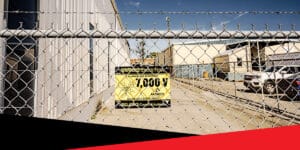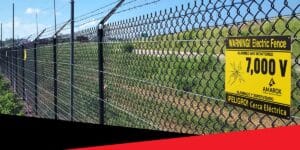Coming Soon To Your Town: Gas-Powered Landscaping Equipment Bans
Hate to wake up to the sound of your neighbor’s lawn being mowed first thing Saturday morning? You may not for much longer.
Gas Powered Lawn Equipment Ban
Gas-powered small engine bans are going into effect across the country. So far, California, Vermont, and Washington, D.C. have put regulations into place that restrict or outright ban the use of gas-powered lawnmowers, leaf blowers, and other lawncare equipment.
This ban aims to significantly reduce air pollution and greenhouse gas emissions. This move is part of a broader environmental strategy that promotes the transition to zero-emission, battery-powered alternatives.
California Lawn Equipment Ban
California’s gas-powered lawn equipment ban prohibits the sale of new gas-powered lawn mowers, leaf blowers, and chainsaws for both commercial and residential applications. Incentives and rebates may be available to help homeowners and professional landscapers acquire battery-powered or corded alternatives, reflecting California’s commitment to environmental sustainability and public health.
Gas-powered leaf blowers, lawn mowers and snow blowers are known to emit dramatically high amounts of carbon monoxide, carbon dioxide, hydrocarbons, volatile organic compounds, nitrogen oxides and particulate matter into the air, far surpassing the amount produced by the average car or truck.
"A gas-powered lawn mower can produce as much pollution in one hour as the average car driving 45 miles.” *
Americans use 800 million gallons of gas each year mowing their lawns, and in addition to that, the EPA estimates that enough fuel is spilled in the refueling of gas-powered lawn equipment every than was spilled by the Exxon-Valdez. Gas-powered lawn equipment, though effective, is dirty business.
What Types of Equipment Are on the Chopping Block?
Bans and limits vary from state to state, but gas-powered small engines of all types are being considered for bans throughout the country. These can include:
- Lawn mowers (both riding and push mowers)
- String trimmers (weed eaters)
- Leaf blowers
- Snow blowers
- Chainsaws
- Golf carts
Embracing the Benefits of Going Electric
Switching your current gas-powered mowers, leaf blowers and string trimmers over to their electric versions can be expensive. However, if you’re feeling unnerved by the growing bans for gas-powered equipment, consider the possible positive effects of eliminating the pollution caused by these small engines. According to The National Institute of Environmental Health Sciences, air pollution (like the kind from dirty small engines) is responsible for 6.5 million deaths each year from conditions such as:
- Cancer – For example, one study of 57,000 women found that living near a major roadway increased their risk of breast cancer.
- Cardiovascular disease – Particulate matter from air pollution can speed up calcification of the arteries and impair blood vessel function.
- Respiratory diseases – Asthma, emphysema, COPD and other respiratory disorders are linked to air pollution.
It should be noted that breathing in air polluted with carbon emissions is particularly hard on children. Children who live in areas with greater air pollution suffer more from asthma, have more asthma attacks, develop more serious problems related to asthma (such as bronchitis), and have more sickness-related school absences.
How Will This Affect You?
Depending on where you live, these gas-powered engine bans may affect you differently. Starting in 2024, California will no longer allow the sale of new small gas engines, but owners of gas-powered blowers and mowers are allowed to use the ones they already own. Washington D.C. has a stricter rule in place that bans anyone from using a gas-powered leaf blower.
Some communities in California are offering locations where residents can trade in old gas-powered equipment for vouchers to purchase new, electric replacements. Getting ready to buy a piece of equipment anywhere in the country? It might be a good idea to buy electric, as these bans are slowly making their way across the country.
Electric Equipment May Be at a Higher Risk of Theft
Electric lawn equipment tends to be more expensive than gas-powered versions, though all electric equipment advertises that it saves money over time by eliminating the need for expensive fossil fuels. If you’re already worried about thieves stealing your equipment when you’re out on a job or when it’s stored at your facility, that risk is probably going to increase dramatically once the equipment you’re using and storing becomes more expensive. More expensive equipment always makes a more tempting target for thieves.
As you prepare for the switch to electric, do an analysis of your current security practices to make sure they’re up to the task they may be about to face. Look for vulnerabilities in your perimeter security, procedures you use to track each piece of equipment when it leaves your warehouse, etc. The theft of valuable equipment doesn’t just cost you the money it would take to replace it. It can also cost you thousands (or more), in downtime, loss of reputation, and lost business. The security of your equipment is not something to be left to chance.
Schedule a Threat Assessment With AMAROK
Schedule a FREE, no obligation, Threat Assessment today. AMAROK will analyze your current solutions and systems, take a look at crime trends in your area, and expose vulnerabilities that could cost you money and business, all for free. Schedule yours now.






